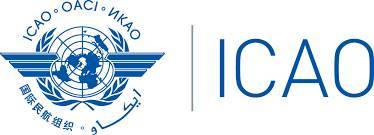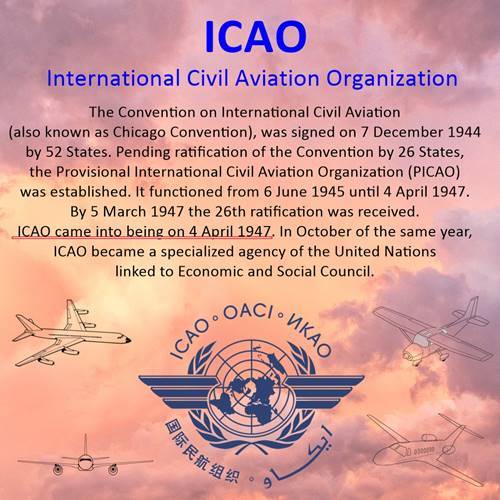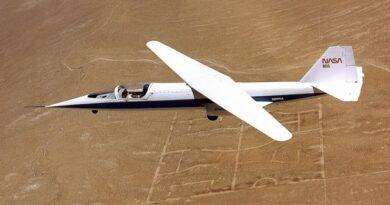History and importance of ICAO
The International Civil Aviation Organization is a specialized agency of the United Nations (UN) established in 1944 to manage and regulate international civil aviation. The organization is headquartered in Montreal, Canada, and now (01.2023) has 193 Member States.
The ICAO’s primary role is to develop and promote standards and recommended practices (SARPs) for international air navigation. These SARPs ensure the safety, security, efficiency, and regularity of international air traffic. And SARPs are used as the basis for national civil aviation regulations.
The ICAO’s objectives are to foster the planning and development of international air transport so as to ensure the safe and orderly growth of civil aviation throughout the world, promote the development of air navigation facilities, encourage the harmonization of regulations and practices relating to air navigation, and provide for the conservation of aviation-related environmental and atmospheric resources.
ICAO’s Vital Role in Aviation
ICAO’s influence touches every facet of international air travel:
- Safety First: ICAO develops SARPs covering pilot licensing, aircraft maintenance, and more. This ensures a consistent safety level across member states.
- Streamlining Skies: ICAO works to optimize air traffic management and border procedures, minimizing delays and keeping flights on schedule.
- Security Matters: ICAO sets aviation security standards to prevent terrorism and other threats.
- Going Green: ICAO addresses aviation’s environmental impact by promoting sustainable practices and reducing emissions.

Standards and Recommended Practices (ISARPs) – ICAO
One of the ICAO’s key achievements is the development of the International Standards and Recommended Practices (ISARPs) which are universally accepted and used as the basis for national regulations. These ISARPs include standards for aircraft design and construction, air traffic control, airport operations, and safety management systems.
Another important function of the ICAO is to provide assistance to Member States in the development of their civil aviation infrastructure and services, including air traffic management and air navigation systems. The ICAO also provides technical assistance and training programs to help Member States improve their aviation safety and security systems.

Protection of the Global Aviation Environment
The ICAO plays a crucial role in the protection of the global aviation environment. It has developed standards for aircraft engine emissions and noise, as well as guidelines for reducing the impact of aviation on climate change. The ICAO is also responsible for providing guidance on the implementation of the Convention on International Civil Aviation, also known as the Chicago Convention, which was signed in 1944 and remains the foundation of the international civil aviation system.
In conclusion, the International Civil Aviation Organization is a critical international body that plays a vital role in the regulation and development of international civil aviation. Its work ensures the safe, efficient, and regular operation of international air transport. And its standards and recommended practices are essential for the continued growth of the global aviation industry.
References and Further Reading on ICAO
- Official Website: https://icao.int/ – The primary source for information, including its history, mission, and current activities.
- Chicago Convention on International Civil Aviation: Chicago Convention on International Civil Aviation : https://www.icao.int/publications/Pages/doc7300.aspx
- Standards and Recommended Practices (SARPs): https://www.icao.int/safety/SafetyManagement/Pages/SARPs.aspx
- Air Transport Action Group (ATAG): Air Transport Action Group: https://atag.org/


